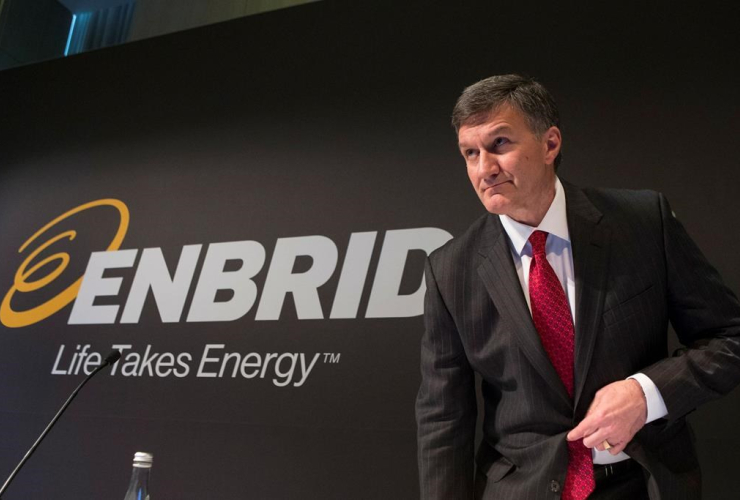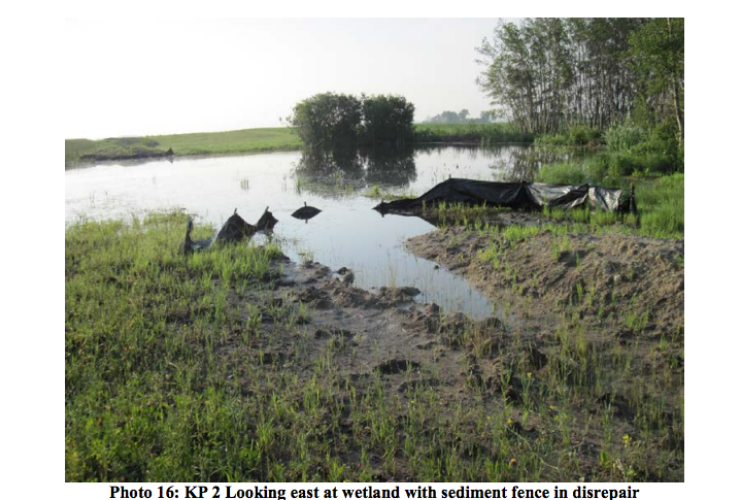A Canadian company that owns twin oil pipelines in the area where Lakes Huron and Michigan converge said Monday it will spend $7 million over the next two years on additional equipment that could be deployed quickly in the event of a spill, while insisting prospects are remote that it ever will be needed there.
Enbridge Energy, based in Calgary, Alberta, said its purchases would include skimming and containment devices that would help crews recover oil quickly in open water and even during icy conditions in the Straits of Mackinac, a nearly 5-mile-wide waterway that separates Michigan's two peninsulas.
"In the very unlikely event that we have to respond to a pipeline incident, we're ready," said Stephen Lloyd, a senior manager of emergency response with the company.
Enbridge announced the equipment buys as it kicked off a three-day public relations tour in northern Michigan, to include "open-house" barbecues in six towns featuring presentations and exhibits designed to convince residents the pipeline known as "Line 5" has never leaked, is in good shape and poses no risk to the scenic area and its tourism-based economy.
Line 5, which carries nearly 23 million gallons of light crude oil and liquefied natural gas daily, runs underground across northern Wisconsin and the southern tier of Michigan's Upper Peninsula before dividing into two sections that extend across the bottom of the Straits of Mackinac, as deep as 270 feet. From there, it continues underground to refineries in Sarnia, Ontario.
Numerous elected officials, including some members of Congress and Michigan's attorney general, have raised concerns about Line 5 since another Enbridge pipeline ruptured in southern Michigan in 2010, releasing more than 800,000 gallons of oil into the Kalamazoo River and a tributary creek.
Environmental groups want Line 5 shut down or rerouted away from the straits area, contending the 63-year-old pipeline is too great a danger. A University of Michigan study identified 720 miles of U.S. and Canadian shoreline that could be fouled by a significant release, depending on factors such as weather and currents.
"This really makes you wonder why Enbridge is not coming to the table and admitting that eventually this infrastructure has to be decommissioned," said Liz Kirkwood, executive director of For Love of Water, a group opposed to Line 5.
Enbridge says the underwater section is inspected regularly — from inside and outside — and monitored continuously from its operations centre, where staffers who detect a problem could remotely stop the flow within three minutes. The U.S. agency that regulates pipelines recently released a consultant's study that found no corrosion issues with the pipes, but critics noted it relied on Enbridge data. State officials are planning an independent evaluation.
Lloyd said Enbridge has taken additional steps to prepare for the worst, including basing a permanent crew in the straits-area town of St. Ignace. In response to a consultant's recommendation, the company is stockpiling additional boom — floating barriers that can contain and absorb oil.
It's also ordering eight custom-made devices for the straits area that can be towed to where they are needed, suck up contaminated water and remove the oil for offloading to another vessel, Lloyd said. Others could be obtained from an industry co-operative during an emergency.
"That would prevent it from landing on shorelines and sensitive areas to begin with," Lloyd said.
Enbridge also is getting two "bucket skimmers," which resemble circular brushes attached to robot arms that can scrub oil from patches of ice. During winter, the straits often develop ice cover that's several feet thick. In such conditions, icebreaking vessels might be needed to create openings where the skimmers could operate.
Kirkwood said even with the additional equipment, it's likely that much of the oil from a Line 5 spill would remain in the water.
"We know from previous oil spill disasters that there are severe limitations with existing technology on recovering oil in extreme conditions like those that exist in the straits," she said.
The Associated Press





Comments